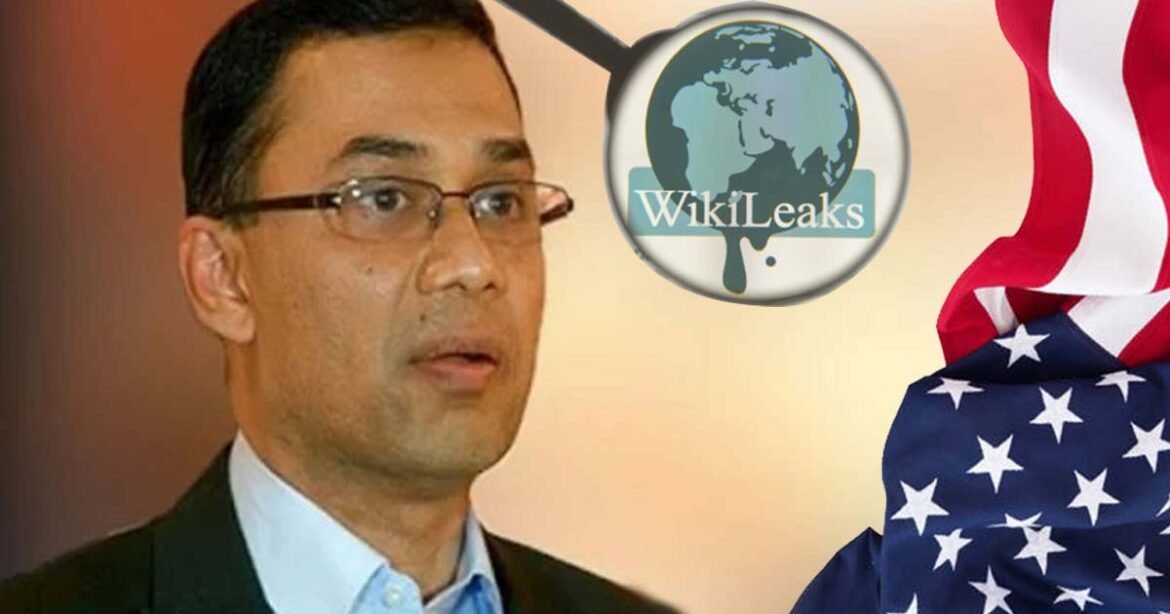The leaked communication ignited a flurry of discussions in both local and international media, generating considerable controversy around Tariq Rahman, the notorious son of former Prime Minister Khaleda Zia.
The WikiLeaks disclosure on August 30, 2011, revealed a top-secret message sent by James F. Moriarty, the then American ambassador to Bangladesh, to the US Department of State in Washington on November 3, 2008. This leaked communication ignited a flurry of discussions in both local and international media, generating considerable controversy around Tariq Rahman, the notorious son of former Prime Minister Khaleda Zia.
You can also read: IRI survey: 70% people think that Sheikh Hasina has done well
The ambassador’s confidential message laid out grave allegations against Rahman, leading to a recommendation that he be denied entry to the United States. Nearly a decade and a half later, the question remains: Is there any possibility of changing America’s attitude towards Tariq Rahman?
The Damning Allegations
In his message, Ambassador Moriarty pulled no punches in outlining the allegations against Tariq Rahman. Accusing him of “egregious political corruption,” the ambassador claimed that Rahman’s actions had significantly impacted the United States’ interests, particularly the stability of democratic institutions and foreign assistance goals. The accusations painted a bleak picture of a figure deeply enmeshed in a web of bribery, embezzlement, and corruption, casting a shadow over Bangladesh’s political landscape and its relationship with the United States.
A Stain on U.S. Goals
Rahman’s alleged activities were deemed detrimental to several U.S. objectives. The ambassador’s message emphasized that his corrupt practices were undermining efforts to reform legal codes, bolster good governance, and curb judicial abuses in Bangladesh. Additionally, the rampant corruption allegedly perpetuated by Rahman had reportedly eroded the business environment, leading to lost opportunities for U.S. enterprises and impeding economic growth.
Furthermore, the message indicated that Rahman’s actions had directly undermined U.S. initiatives to foster political stability and democratic governance in Bangladesh. These allegations raised concerns about his influence on the nation’s judicial process and his potential to hinder the realization of a stable, democratic Bangladesh.
Persistent Attitude or Potential Shift?
Given the gravity of the allegations and the diplomatic importance of the situation, it is reasonable to question whether America’s stance on Tariq Rahman could evolve over time. The leaked message, although from over a decade ago, still casts a long shadow over Rahman’s reputation. However, geopolitical dynamics are ever-changing, and political landscapes can transform with new leaders and policies.
Political Dynamics and International Relations
It is worth considering whether the enduring attitudes towards Rahman align with the broader foreign policy objectives of both Bangladesh’s political parties and the United States. If the core interests of these parties remain consistent with the ambassador’s assessment, the potential for a change in attitude might be limited. However, shifts in political leadership, domestic priorities, or evolving international dynamics could potentially lead to a reevaluation of past judgments.
Conclusion
The leaked message from Ambassador Moriarty regarding Tariq Rahman has undeniably left an indelible mark on the political landscape of Bangladesh and its relations with the United States. The allegations outlined in the message have not only shaped the perception of Rahman but have also contributed to broader discussions on corruption, governance, and democracy in the region.
Whether America’s perspective on Tariq Rahman could change in the future hinges on a complex interplay of political, diplomatic, and international factors. As the years unfold, only time will reveal whether there is room for a shift in attitude or if the allegations from the past will continue to cast their shadow on the present and future.
There appears to be no compelling rationale to believe that the United States’ perception of BNP leader Tariq Rahman has undergone any alteration. Both of the nation’s primary political parties align closely on matters of foreign policy and American concerns. It is evident that the present trajectory of the BNP movement lacks endorsement from the United States concerning its calls for a caretaker government. As the party grapples with a leadership crisis, navigating this challenge becomes its paramount endeavor.


